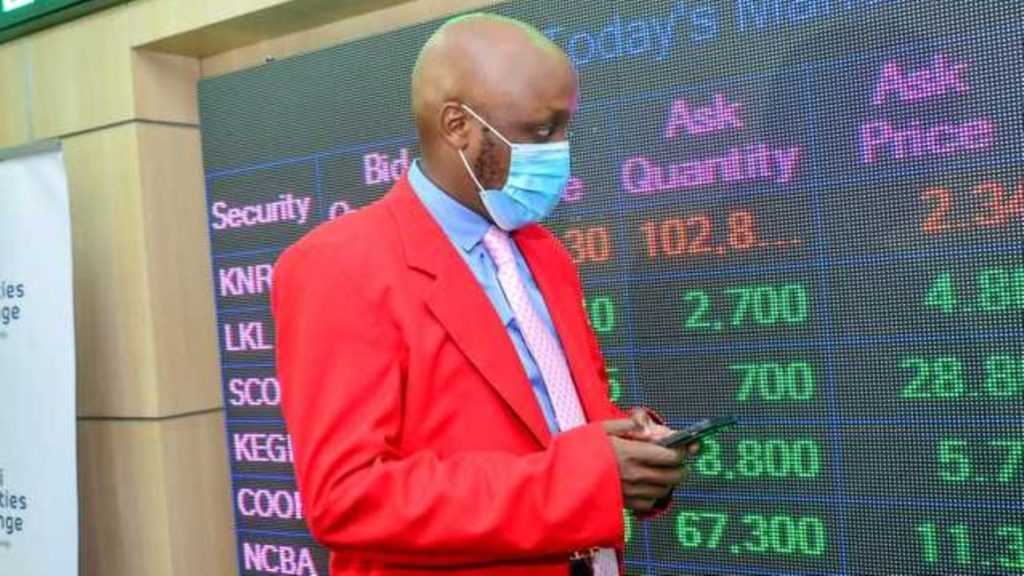A trader at Nairobi Securities Exchange trading floor at the Exchange Building in Nairobi. FILE PHOTO | COURTESY Nairobi Securities Exchange (NSE) Plc has reduced transaction fees by five percent for equity investors who adopt the same-day trading model.
The bourse is gearing up for the implementation of a Day-Trading model in equity transactions in the latest attempts to woo investors and new companies to list.
The stockmarket is weighed down by investor apathy, lack of new listings and unscrupulous dealers preying on unsuspecting investors through insider trading.
The latest move is designed to bolster liquidity in the market, with the buying and selling or selling and buying of shares of the same security on the same account being effected on the same day, also referred as intraday trading. However, the cash settlement for the traded shares will still be carried out on the current T+3 cycle where payment is effected three days after the transaction.
According to the guidelines approved by the Capital Markets Authority (CMA) on October 21 rebates, calculated as a percentage of the transaction levies , will be offered to investors on trade offsetting positions created on the same day.
According to the rules, NSE levy of 0.12 percent will reduce to 0.114 percent of the value of the transaction after applicable rebate of five percent while CMA and Central Depository and Settlement Corporation levies of 0.12 percent and 0.08 percent respectively will remain unchanged. The guidelines stipulate that only trades executed on the same day for the same security on the same Central Depository System account with a single broker will qualify for selection as day trades.
Efforts to get comments from NSE chief executive Geoffrey Odundo proved futile as he didn’t not respond to our emailed questions by the time of going to the press.
The stockmarket which harbours 66 listed companies some of which have been suspended and delisted, is fighting to recapture the allure that vanished in the thin air after the Safaricom initial public offering (IPO) fiasco in 2008 that pulled over 742,000 new investors in the market
Many took bank loans and sold personal properties to buy into the 10 billion share offer that later backfired after the share price fell below the IPO price of Ksh 5 ($0.04) per share, causing many investors particularly the small and retail investors to flee the market.
NSE 20 Share Index, a key market performance indicator has declined by more than […]
